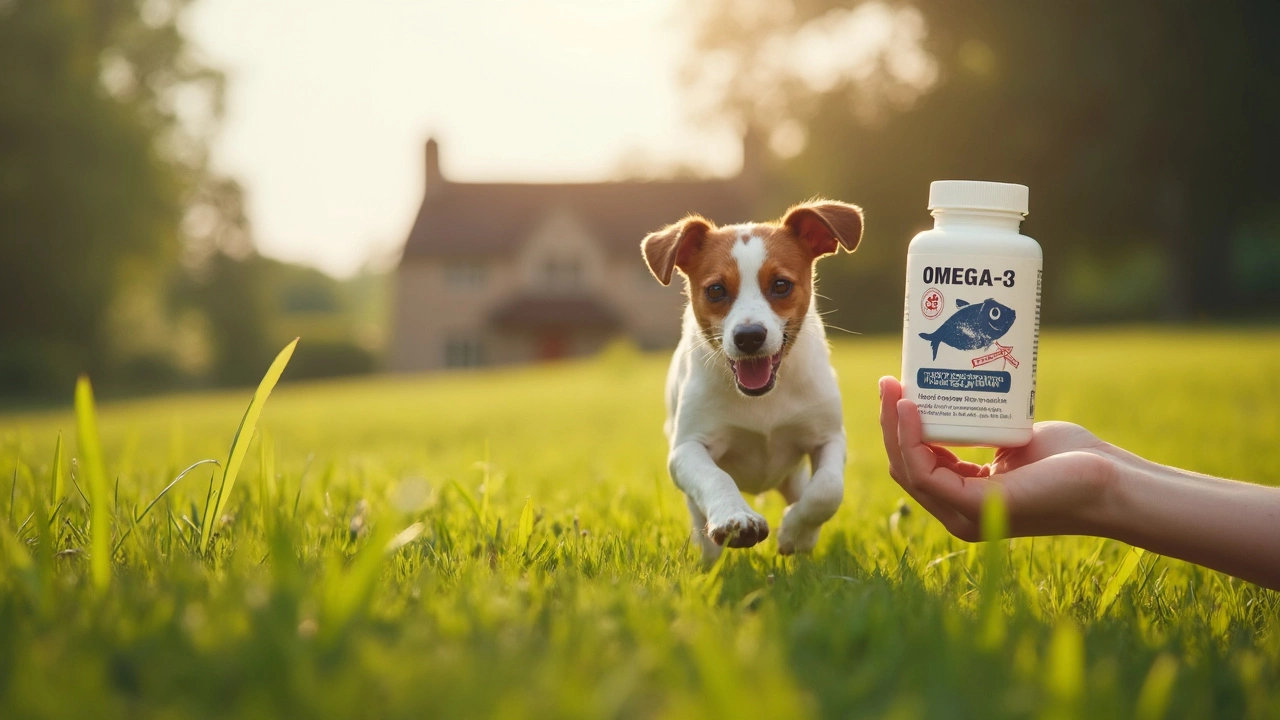Supplements for Dogs – What Every Pet Owner Should Know
Feeding your dog a balanced diet is the first step to a happy, healthy life, but even the best home‑cooked meals can miss key nutrients. That’s where supplements step in – they fill the gaps, keep joints moving, support the immune system, and make sure your pup gets the vitamins it needs.
Before you grab a bottle off the shelf, think about what your dog actually requires. Breed, age, activity level, and any health issues all shape the supplement list. A playful Labrador will have different needs than a senior Chihuahua, and a dog with allergies might need extra omega‑3s for skin comfort.
Why Dogs Need Supplements
Most commercial dog foods are formulated to meet basic nutritional standards, but homemade recipes often lack calcium, vitamin D, or certain amino acids. Without those, you could see brittle bones, dull coats, or sluggish energy. Adding a calcium source, like finely ground eggshell powder, can support strong teeth and bones, especially for growing puppies.
Joint health is another common concern. Dogs love to run, jump, and chase, which puts stress on hips and knees. Glucosamine and chondroitin are the go‑to supplements for many owners because they help maintain cartilage and reduce stiffness. If your dog shows early signs of arthritis, a daily dose can make a big difference.
Skin and coat issues often trace back to missing fatty acids. Omega‑3 supplements, usually derived from fish oil, bring down inflammation and give that glossy shine most owners love. Even a small spoonful mixed into food can calm itching and improve overall skin health.
Choosing the Right Supplements for Homemade Food
Start with a basic checklist: protein, fat, carbohydrates, vitamins, and minerals. A good homemade recipe will already cover protein and carbs, so focus on the missing pieces. Here’s a quick cheat sheet:
- Calcium: Crushed eggshells (1/2 tsp per 10 lb of food) or a commercial bone meal.
- Vitamin D: Small amounts of cod liver oil (1 ml per 5 lb of food) – watch the dosage, too much can be toxic.
- Omega‑3: High‑quality fish oil (1 tsp per 10 lb of food) or algae‑based capsules for vegans.
- Glucosamine/Chondroitin: Powdered joint blends (follow label, usually 500 mg per 20 lb).
- Probiotics: A pinch of plain yogurt or a pet‑specific probiotic powder to aid digestion.
When buying a supplement, look for products that list the exact amount of active ingredient per serving. Avoid “proprietary blends” that hide the dosage – you want to know what you’re giving your dog.
Always check with your vet before adding new supplements, especially if your dog is on medication. Some ingredients, like high‑dose vitamin A, can interact with drugs or cause toxicity.
Finally, keep a simple log. Note the supplement, dose, and any changes you see in your dog’s energy, coat, or joint movement. After a few weeks you’ll spot what works best and can adjust the routine.
Supplements aren’t a magic fix, but they’re a practical tool to round out a nutritious diet. By targeting the gaps that homemade meals often have, you give your dog a stronger immune system, smoother joints, and a shinier coat – all without breaking the bank.
Posted By Bryndle Redding On 6 May 2025 Comments (0)
Can I Give My Dog Cod Liver Oil Every Day? The Real Scoop
Thinking about giving your dog cod liver oil every day? This article digs into the benefits, risks, and smart ways to use this supplement for dogs. Get straightforward answers about dosing, safety tips, and what to watch for if you add it to your dog's routine. You'll also learn if daily use is a good idea or if it's better to use cod liver oil differently. Everything you need to know is packed in here—no fluff.
READ MOREPosted By Bryndle Redding On 3 Mar 2025 Comments (0)
Best Dog Food Supplements: What Your Pup Might Be Missing
Boost your dog's health with the right supplements. Just like humans, dogs can miss out on essential nutrients. Adding the right supplements to their diet can help bridge these dietary gaps. From omega-3 fatty acids to probiotics, find out what can enhance your pup's well-being and vitality.
READ MORE
